How Do We Know Our Students are Learning?
We’re a month into the school year and we’re already off to a great start!
I want to refresh your memory on a pivotal paragraph in our original vision for TAF Academy:
“Students will learn to succeed; not for standards or teacher expectations; not to compete in the workforce and fuel the economy; not for personal gain and prestige; but succeed so that they can position themselves to create the world that they themselves envision; personally, communally, nationally and globally.”
Achieving this vision for students-particularly those routinely undereducated by our public education system-in a public education environment is, at best, a challenge. But to do this and also meet the standardized test expectations of those that use tests as the ultimate indicator of success, seemed nearly impossible. But you know TAF, we do what’s right for students no matter how difficult it is!
When we started TAF Academy, we knew the most important thing was to create a culture of achievement. A culture that was safe. A culture that had its sights set on developing leaders ready to enter and graduate college. Passing standardized tests did not fit into the equation. We were not going to create a school of test takers. We knew that if the adults got it right and created the best learning environment, the standardized tests would take care of themselves.
For the first three years, the naysayers watched carefully and sniped behind our backs. We stayed focused on what we knew was a long journey, and not a sprint to our goals. We weathered all the school startup issues–some better than others–and we had some moments of “oh hell, what did we get ourselves into”. We failed in some places, made strategic corrections, and made sure we didn’t have the same failure again. In all of this, we held to our moto “Do no harm to students”.
In three short years of TAF Academy, we have found the balance between standardized test expectations and our goals of growing whole students. Our students have amassed an amazing body of artifacts demonstrating their knowledge. And yes, more of them are passing the state tests.
TAF Academy key milestones:
- We met Annual Yearly Progress for the first time. The first two years we didn’t miss by much, but to completely pass is a huge milestone.
- Middle School – Onsite tutoring pays off!
- 6th and 7th grade scores were higher than state and district averages in all categories
- 8th grade reading scores were higher than state and district averages
- 30 point increase on 6th grade math scores from 2009-2010
- 10 point increase in 6th grade reading scores from 2009-2010
- 7th grade students improved their math score by 30 points over their 6th grade scores from 2009-2010
- 8th grade students improved their reading score by 14 points over their 6th grade scores from 2009-2010
- 86% of our middle school students passed the End of Course Algebra 1 test.
- High School
- 10th grade science scores were 7 points higher than 2009-2010 scores
- 11th grade students End of Course Algebra 1 test scores were higher than district average
As you’ve heard from me many times before, the success and failure of our students’ ability to learn is directly attributed to the kind of environment the adults at the school create. Here is where we failed:
- High school students reading and writing scores fell 21 and 23 points respectively. Their teacher took a leave after the first semester and the position was filled by two different teachers during the second semester. We failed to ensure consistency in the learning environment.
- Only 50% of our 10th grade students passed the End of Course Algebra 1 test compared to the district 64% average. We were unable to devise a way to give high school students more time with math due to constraints in scheduling and credit requirements.
Clearly we’re not done. We have some things to work on:
- Explore why 86% of our 8th graders passed the state End of Course Algebra 1 test, but only 40% passed the state Measure of Student Progress test which measures all the skills before Algebra 1. We need to fill the gaps so students don’t run into problems going forward.
- We continue to make improvements on middle school science curriculum so students enter high school ready to excel in all the courses they need to be college eligible.
- Develop a way to give struggling high school students more time with math (much like we did our middle school students with onsite tutoring) to boost their competency.
On August 31st, I had the opportunity to thank our teachers and staff in person for their hard work in creating the kind of academic environment we dreamed of. They have set a great example for our incoming staff and I am confident this will be an even better school year!
A special thanks to Federal Way Public School District (retired Superintendent Tom Murphy in particular) for being an innovative, supportive and equal partner on this journey.
I want to thank you for your ongoing support of our students and for believing in them. Thank you for believing in us.





